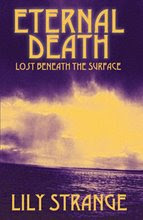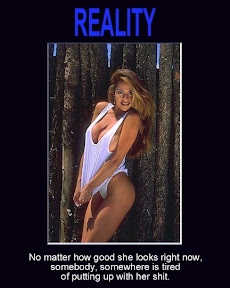
HELLO EVERYONE....
PLEASE GO TO THIS WEBSITE AND LIGHT A CANDLE... MONEY IS BEING DONATED FOR THE VICTIMS AND THEIR FAMILIES ...
LETS ALL PRAY FOR PEACE
http://clients.ibnlive.com/features/mumatt/index.php
THANKS
Gita
Is Mumbai rude asks Smita?
mumbai meri jaan....
Forward this to every Mumbaikar you know AND to all those who call Mumbai arude city.....Nice stuff!!!Bombay, Zara BachkeRude city? You bet, says Mumbaikar Jerry Pinto in defense of a metropolistoo busy to mind its manners but always ready to help when trouble comesReader\'s Digest, which interests itself in these things, tells us thatMumbai is the rudest city in the world. This is also the magazine thatcarried a story saying that global warming might be good for us.I swear, they did this in May, when my cousins in Nagpur were reporting thatthe city was burning up at 52 degrees centigrade.I come not to praise Mumbai, however. I come to ask whether the Reader\'sDigest editors really mean it when they say that New York is the politestcity in the world? What is it to be polite? In London, a terribly politecity by my experience, a young woman refused to lend her scarf to be used asa tourniquet when a man was stabbed on the bus. He bled to death. I am sure,the young woman said, "I\'m sorry but it\'s an expensive scarf." The personwho asked for the scarf probably said, "Right. Cheers." Meanwhile, the bloodpulsed on from the dying man\'s neck.In Mumbai, my mother once was forced to go to a public hospital with atorn-up leg. In front of her, the poor waited in the way that the poor wait,endlessly, patiently, quietly. When she joined the line, they all assessedtheir need, assessed hers and stepped out of the way wordlessly. She went tothe top of the line, protesting quietly all the way. She did not bleed todeath. Perhaps, she even forgot to thank all those people. Perhaps, they didnot expect to be thanked.But since no one seems to have bothered about definitions, let\'s dump themtoo. Perhaps it is polite to be a city like New York where all the shopassistants say thank you and please and the doormen are ready to open thedoor for you but there are 55,000 violent crimes a year. And that representsa 10-year low. Perhaps Mumbai with its 122 murders in six months must besignificantly ruder but less lethal.But are we rude?Sudhir MishraFilmmaker"My dominant image for Mumbai. I\'m standing outside Mahalaxmi railwaystation, it starts to rain. A man comes out with an umbrella and starts towalk away. He notices another man getting wet, he pauses, and in an unspokenway invites him under the umbrella. Then they see me, and I get under aswell. That\'s Bombay. Three men sharing an umbrella, all getting wet. There\'sless space under the umbrella now — too many people, too littleinfrastructure, but people are still sharing it. "Yes, we are rude. We are almost always rude. Cities are always rude. We arethe only city in the country. Delhi is a bunch of villages held together bythe politics of power and some nice roads. Chennai is a self-satisfied townwhich wants to be known for its culture. Bangalore looked like it might wellgrow up to be a city but now that it\'s got the opportunity to do it; it\'schoking itself to death. Calcutta had its moment of glory in the 19thcentury when they built lots of mansions and factories and set up the kindof intellectual atmosphere of a Cambridge debating society. Then they lostit, the Bangla babus and settled into making funny kurtas for their men towear and selling Bankuda horses to the rest of the country.Yes, we are rude. We don\'t have time for that. We\'re too busy dragging therest of you into some semblance of wealth. We\'re too busy earning the moneythat runs the country. We\'re too busy paying for the Delhi and KolkataMetros. We\'re too busy earning the money to pay the 75 percent of the incometax paid by the country. In Kolkata, they don\'t earn money. In Bangalore,they know how to hide it cyberwise. In Delhi, everyone\'s a farmer withagricultural income that\'s tax free.Sarayu SrivastavaWriter"I think of Mumbai as a very cold but sensuous woman — it all depends on howyou warm her up. In this city every kindness begets more kindness. Delhi\'seyes literally undress you. Mumbai sees you first as a person then a woman.People do tend to keep their distance here, but if you try and do somethingnice, a sudden sensitive humanness peeps out. It\'s hardship city — it getsby on humour. "Land-starved Mumbai? The 14 million of us, we dream of the kind of spacethat young couples have in Delhi. We\'d like a barsati too. We won\'t get it.But we\'ll work hard at it. The shop assistant who doesn\'t thank you probablygoes home to his \'side business\' and puts in another two or three hours.This could be anything from making papads to selling insurance to givingprivate tuition. It leaves him with very little time or inclinations to saythank you.But when trouble comes, he will do what he can. In the cataclysmic floods oflast year, the average person did what the government could not. They threwopen their homes. They left the security of dry land and waded into thewater to rescue children. They formed human chains to take people off thebuses. They made tea and snacks and gave it to people. Contrast that to theway Americans behaved when Hurricane Katrina struck. People went on therampage. They shot at each other, even at their rescuers. They assaultedeach other. They looted abandoned homes. In Mumbai, no violence wasreported. No violence happened. Ask me, I walked home. Ask my sister, shewalked home too. Together, we covered a distance of 30 kilometers that dayand we only saw people helping each other, people offering support andsolidarity.Milind DeoraPolitician"My idea of Bombay? A waiter serving in the Taj — during the day he might beserving Bill Gates and he\'ll carry himself with aplomb, be as cosmopolitanas anyone. At night he\'ll be taking the train to Dharavi, return to hisslum, put on his lungi and baniyan, help his old parents, help wash dishes,and watch TV. You can be everything at the same time in Bombay. It\'s likethat old Sinatra song — if you can make it here, you can make it anywhere. "One of the most compelling images in Suketu Mehta\'s essay which NareshFernandes and I included in our anthology, Bombay Meri Jaan: Writings onMumbai (Penguin India, 2003) … but read on:If you are late for work in Bombay, and reach the station just as the trainis leaving the platform, you can run up to the packed compartments and youwill find many hands stretching out to grab you on board, unfolding outwardfrom the train like petals. As you run alongside you will be picked up, andsome tiny space will be made for your feet on the edge of the open doorway.The rest is up to you; you will probably have to hang on the door frame withyour fingertips, being careful not to lean out too far lest you getdecapitated by a pole placed too close to the tracks. But consider what hashappened. Your fellow passengers, already packed tighter than cattle arelegally allowed to be, their shirts already drenched in sweat in the badlyventilated compartment, having stood like this for hours, retain an empathyfor you, know that you boss might yell at you or cut your pay if you missthis train, and will make space where none exists, to take one more personwith them. And at the moment of contact, they do not know if the hand thatis reaching theirs belongs to a Hindu or Muslim or Christian or Brahmin oruntouchable or whether you were born in the city or arrived only thismorning or whether you live in Malabar Hill or Jogeshwari; whether you arefrom Bombay or Mumbai or New York. All they know is that you\'re trying toget to the city of gold, and that\'s enough. Come on board, they say. We\'lladjust.*Roopashri Sinha*",0]
);
//-->
Note: Forwarded message attached-- Original Message --Forward this to every Mumbaikar you know AND to all those who call Mumbai arude city.....Nice stuff!!!Bombay, Zara BachkeRude city? You bet, says Mumbaikar Jerry Pinto in defense of a metropolistoo busy to mind its manners but always ready to help when trouble comesReader's Digest, which interests itself in these things, tells us thatMumbai is the rudest city in the world. This is also the magazine thatcarried a story saying that global warming might be good for us.I swear, they did this in May, when my cousins in Nagpur were reporting thatthe city was burning up at 52 degrees centigrade.I come not to praise Mumbai, however. I come to ask whether the Reader'sDigest editors really mean it when they say that New York is the politestcity in the world? What is it to be polite? In London, a terribly politecity by my experience, a young woman refused to lend her scarf to be used asa tourniquet when a man was stabbed on the bus. He bled to death. I am sure,the young woman said, "I'm sorry but it's an expensive scarf." The personwho asked for the scarf probably said, "Right. Cheers." Meanwhile, the bloodpulsed on from the dying man's neck.In Mumbai, my mother once was forced to go to a public hospital with atorn-up leg. In front of her, the poor waited in the way that the poor wait,endlessly, patiently, quietly. When she joined the line, they all assessedtheir need, assessed hers and stepped out of the way wordlessly. She went tothe top of the line, protesting quietly all the way. She did not bleed todeath. Perhaps, she even forgot to thank all those people. Perhaps, they didnot expect to be thanked.But since no one seems to have bothered about definitions, let's dump themtoo. Perhaps it is polite to be a city like New York where all the shopassistants say thank you and please and the doormen are ready to open thedoor for you but there are 55,000 violent crimes a year. And that representsa 10-year low. Perhaps Mumbai with its 122 murders in six months must besignificantly ruder but less lethal.But are we rude?Sudhir MishraFilmmaker"My dominant image for Mumbai. I'm standing outside Mahalaxmi railwaystation, it starts to rain. A man comes out with an umbrella and starts towalk away. He notices another man getting wet, he pauses, and in an unspokenway invites him under the umbrella. Then they see me, and I get under aswell. That's Bombay. Three men sharing an umbrella, all getting wet. There'sless space under the umbrella now — too many people, too littleinfrastructure, but people are still sharing it. "Yes, we are rude. We are almost always rude. Cities are always rude. We arethe only city in the country. Delhi is a bunch of villages held together bythe politics of power and some nice roads. Chennai is a self-satisfied townwhich wants to be known for its culture. Bangalore looked like it might wellgrow up to be a city but now that it's got the opportunity to do it; it'schoking itself to death. Calcutta had its moment of glory in the 19thcentury when they built lots of mansions and factories and set up the kindof intellectual atmosphere of a Cambridge debating society. Then they lostit, the Bangla babus and settled into making funny kurtas for their men towear and selling Bankuda horses to the rest of the country.Yes, we are rude. We don't have time for that. We're too busy dragging therest of you into some semblance of wealth. We're too busy earning the moneythat runs the country. We're too busy paying for the Delhi and KolkataMetros. We're too busy earning the money to pay the 75 percent of the incometax paid by the country. In Kolkata, they don't earn money. In Bangalore,they know how to hide it cyberwise. In Delhi, everyone's a farmer withagricultural income that's tax free.Sarayu SrivastavaWriter"I think of Mumbai as a very cold but sensuous woman — it all depends on howyou warm her up. In this city every kindness begets more kindness. Delhi'seyes literally undress you. Mumbai sees you first as a person then a woman.People do tend to keep their distance here, but if you try and do somethingnice, a sudden sensitive humanness peeps out. It's hardship city — it getsby on humour. "Land-starved Mumbai? The 14 million of us, we dream of the kind of spacethat young couples have in Delhi. We'd like a barsati too. We won't get it.But we'll work hard at it. The shop assistant who doesn't thank you probablygoes home to his 'side business' and puts in another two or three hours.This could be anything from making papads to selling insurance to givingprivate tuition. It leaves him with very little time or inclinations to saythank you.But when trouble comes, he will do what he can. In the cataclysmic floods oflast year, the average person did what the government could not. They threwopen their homes. They left the security of dry land and waded into thewater to rescue children. They formed human chains to take people off thebuses. They made tea and snacks and gave it to people. Contrast that to theway Americans behaved when Hurricane Katrina struck. People went on therampage. They shot at each other, even at their rescuers. They assaultedeach other. They looted abandoned homes. In Mumbai, no violence wasreported. No violence happened. Ask me, I walked home. Ask my sister, shewalked home too. Together, we covered a distance of 30 kilometers that dayand we only saw people helping each other, people offering support andsolidarity.Milind DeoraPolitician"My idea of Bombay? A waiter serving in the Taj — during the day he might beserving Bill Gates and he'll carry himself with aplomb, be as cosmopolitanas anyone. At night he'll be taking the train to Dharavi, return to hisslum, put on his lungi and baniyan, help his old parents, help wash dishes,and watch TV. You can be everything at the same time in Bombay. It's likethat old Sinatra song — if you can make it here, you can make it anywhere. "One of the most compelling images in Suketu Mehta's essay which NareshFernandes and I included in our anthology, Bombay Meri Jaan: Writings onMumbai (Penguin India, 2003) … but read on:If you are late for work in Bombay, and reach the station just as the trainis leaving the platform, you can run up to the packed compartments and youwill find many hands stretching out to grab you on board, unfolding outwardfrom the train like petals. As you run alongside you will be picked up, andsome tiny space will be made for your feet on the edge of the open doorway.The rest is up to you; you will probably have to hang on the door frame withyour fingertips, being careful not to lean out too far lest you getdecapitated by a pole placed too close to the tracks. But consider what hashappened. Your fellow passengers, already packed tighter than cattle arelegally allowed to be, their shirts already drenched in sweat in the badlyventilated compartment, having stood like this for hours, retain an empathyfor you, know that you boss might yell at you or cut your pay if you missthis train, and will make space where none exists, to take one more personwith them. And at the moment of contact, they do not know if the hand thatis reaching theirs belongs to a Hindu or Muslim or Christian or Brahmin oruntouchable or whether you were born in the city or arrived only thismorning or whether you live in Malabar Hill or Jogeshwari; whether you arefrom Bombay or Mumbai or New York. All they know is that you're trying toget to the city of gold, and that's enough. Come on board, they say. We'll
adjust.*Roopashri Sinha*



























2 comments:
Keshie I hate your fucking guts you black arsed Whore. go and get fucked , piss off.
Here are some latest links to sites where I found some information: http://google-machine.info/700.html or http://googleindex.info/1941.html
Post a Comment